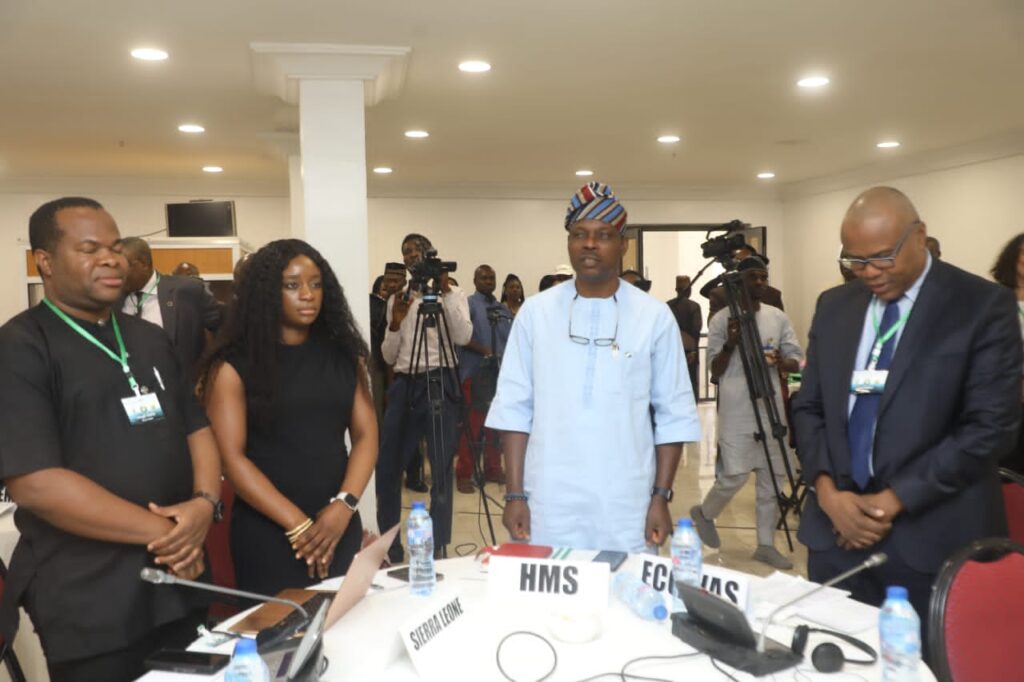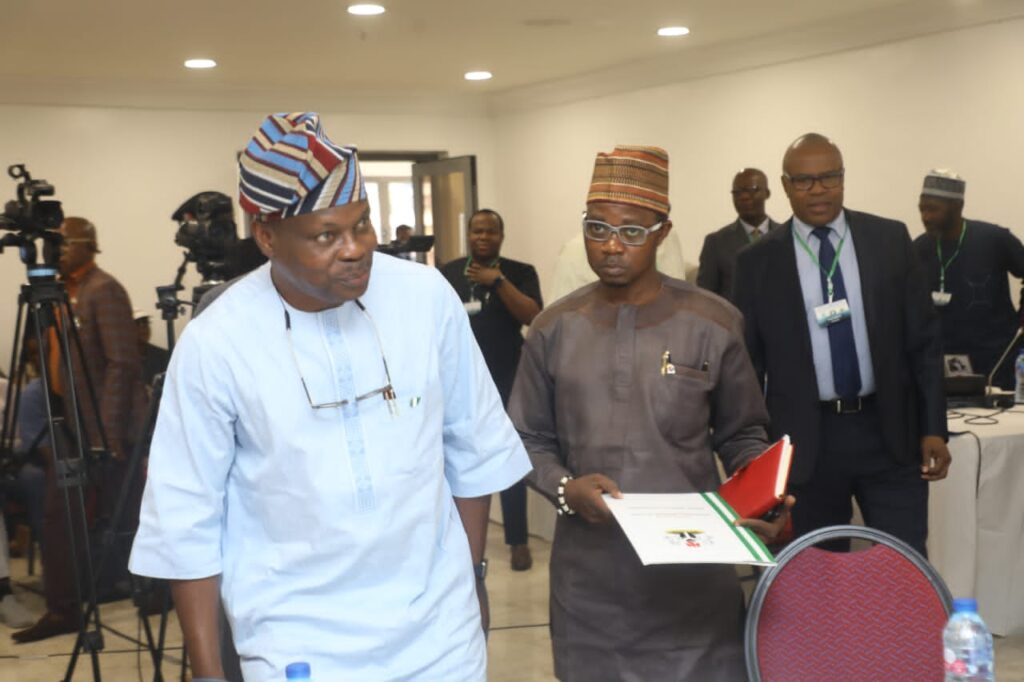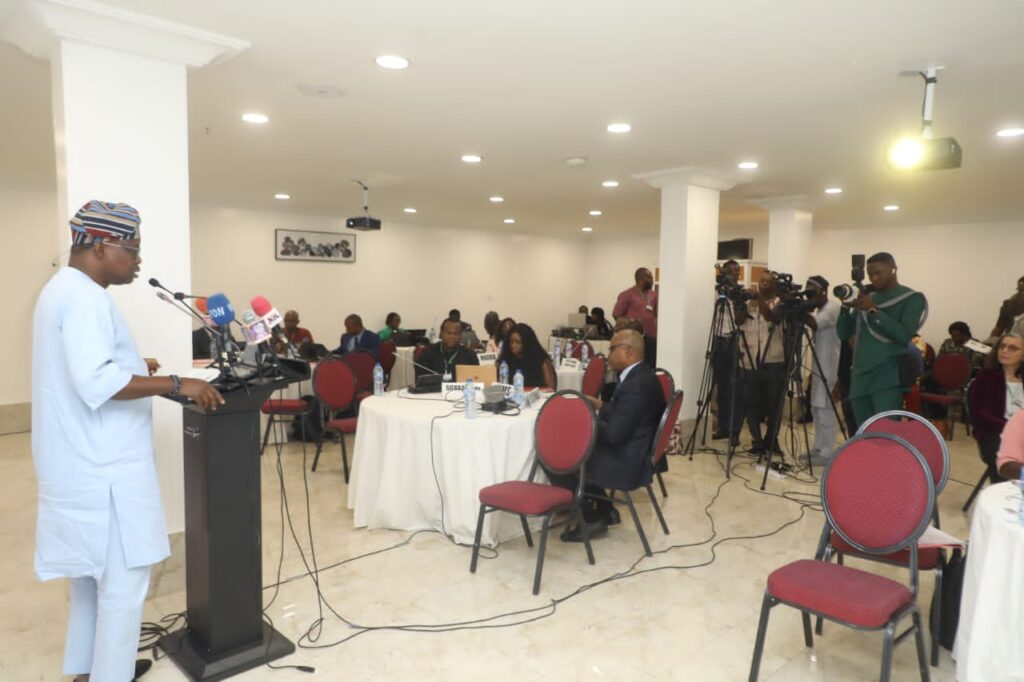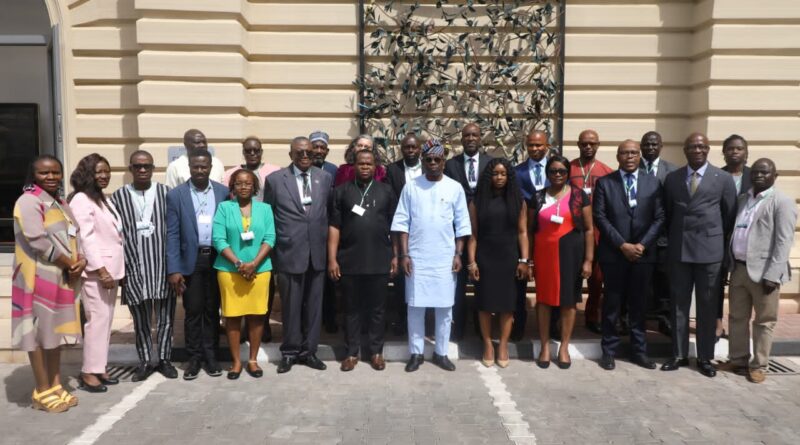Salako Charges ECOWAS Member Nations to Demand for an Ambitious Global Response to Biodiversity and Climate Crisis
…. Seeks Ratification of the High-seas Treaty in West Africa
Nigeria’s Minister of State for Environment, Dr. Iziaq Adekunle Salako, has charged the member Nations of the Economic Community of West African States (ECOWAS) to put pressure on the International Community for an Ambitious Global Response to the Biodiversity Crisis if the sub-regional body wants to protect its oceans or have any hope of preserving the planet for its people and future generation. He stated this at the ECOWAS Marine Biodiversity of Areas Beyond National Jurisdiction (BBNJ) Coordination meeting held in Abuja on Monday, November 20, 2023.
Salako noted that immediate solutions must be found to the biodiversity and climate crisis that is ravaging our planet through biodiversity loss and climate change adding that the status of the world’s oceans today is a clear indication of this dire situation. He said the Federal Government of Nigeria through the Ministry of Environment is committed to ratifying BBNJ treaty in line with the focus of President Bola Ahmed Tinubu to pursue development by unlocking the energy and natural resources of the nation in a sustainable manner.

”Our oceans are under threat today more than ever before with sea level rise, temperature increases, acidification, pollution, biodiversity loss, unsustainable exploitation of marine resources, depletion of fish stocks, the near disappearance of coral reefs, and the destruction of fragile ecosystems.
”The urgent need to address this threat has led Nigeria and its sister ECOWAS member Nations to unite and call on the international community to be more ambitious in its response. Our Appeal for an Ambitious Global Response to the Biodiversity Crisis is urgent and focused. Through the urgent appeal, we had identified several measures as essential, including the global designation of 30% of land and oceans areas as protected by 2030, the conclusion of a robust new high-seas treaty, the establishment of highly and fully protected areas covering 30% of the global ocean which prohibit environmentally damaging activities, and a global commitment towards immediately halting human-induced extinction of wild species, among others”, Salako said.
Salako said only 7% of the world’s oceans are protected, and there are no comprehensive legal mechanisms in place to protect the high seas and the deep seabed areas, and that the shared international areas of oceans that lie beyond national jurisdictions and that include almost 70% of the global ocean.
”Our oceans require strong protection that can only be achieved through a new treaty for the conservation and management of marine life in the high seas. This treaty must ensure that human activities are managed to prevent significant adverse impacts, with vigorous oversight mechanisms and provisions to establish fully and highly protected MPAs in the high seas.

”With the adoption of the high-seas treaty last June, we are one step closer to achieving our goals. In September this year, at the High Ambition for the High Seas event on the sideline of UNGA, Nigeria joined other 22 countries to symbolically sign a commitment to ratify the BBNJ treaty. We must now rally to ratify the new high-seas treaty promptly so it can come into force.
”We are proud that through Nigeria’s rallying efforts, the 55 member States of the African Union have reached a consensus to support ratifying at the earliest feasible date, the new the high-seas treaty, as enshrined in Addis Ababa Declaration adopted at the 19th ordinary session of Africa Ministerial Conference on the Environment (AMCEN). 3 months since the 19th AMCEN, we should move from saying earliest feasible date to a more specific period for Africa to ratify the BBNJ treaty. ECOWAS can lead the way in this direction”, the Minister added.
He said the meeting was to provide a pathway to support ECOWAS countries for prompt ratification of the high-seas treaty and effective engagement in its implementation is an urgent priority for the preservation of our oceans.

”We have a shared responsibility to act and protect the oceans because we all share in the benefits provided by our oceans and because we all share in the harm that comes when degraded coastal and marine ecosystems threaten the physical, economic, food security of local communities, and multinational businesses. Failing to protect our oceans would be catastrophic. If we fail to act, the impacts for people will be profound.
”We must act to protect our oceans now, and we must be bold if we have any hope of preserving our planet for our people and our future generation. Let us lead the way together for nature! The Federal Government of Nigeria through the Ministry of Environment is committed to ratifying BBNJ treaty in line with the focus of President Bola Ahmed Tinubu to pursue development by unlocking the energy and natural resources of the nation in a sustainable manner”, Salako concluded.



